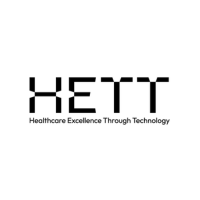The Opening Keynote at HETT North 2024 was delivered by Sir Richard Leese CBE, Chair of NHS Greater Manchester Integrated Care Board. He shared invaluable insights into the role of digital transformation in a devolved healthcare system, highlighting both the progress made and the challenges that remain.
Greater Manchester: A Leader in Digital Innovation
Sir Richard set the stage by positioning Greater Manchester as a global hub for technology and innovation. "We are a hotbed of technology innovation, not only in the UK but recognised globally for our forward-thinking, academic excellence, and as a place where it is good to do technology business," he noted.
Greater Manchester’s Integrated Care System (ICS) is one of the largest in England, serving 3.25 million people. It brings together:
- 10 unitary local authorities
- 9 NHS foundation trusts
- 66 primary care networks
- 17,000+ voluntary, community, and social enterprises
The scale of this system presents both an opportunity and a challenge for digital healthcare integration.

Harnessing Technology for System-Wide Change
Sir Richard emphasised the need to deploy technology more effectively, reducing administrative burdens, supporting self-care, and ensuring faster, more accurate diagnostics. He highlighted two key initiatives that are driving digital transformation in primary care and shared care records:
- Digital First Primary Care – Greater Manchester has invested in digital facilitators to streamline patient access to care through websites, communication tools, digital triage, and NHS app integration. The initiative has not only improved efficiency but has also been shortlisted for the HCN Primary Care Digital Awards.
- Shared Care Records – One of the leading examples in the UK, Greater Manchester’s Shared Care Record connects GPs, social care, and secondary care, ensuring that key patient information is available at critical moments. "Key information that could be life-saving is now accessible across Greater Manchester," Sir Richard explained.
With 24,000 clinicians currently using the system and over 361,000 patient records accessed in January alone, the programme has already saved an estimated £15 million in clinician time. However, engagement remains a challenge: "We’ve made progress, but we have a long way to go."
Using Data for Population Health Management
A major focus of Greater Manchester’s digital strategy is its Advanced Data Science Platform, which allows for population health management and predictive analytics. By analysing six years of patient data, the system can project future health trends and intervene early to prevent conditions from worsening.
"By doing nothing, or just continuing as we are, the picture in five years is pretty scary," Sir Richard warned. He stressed the importance of using data to target interventions for individuals with modifiable risk factors, ensuring early diagnosis and treatment.
The next step is integrating employment data from the Department for Work and Pensions (DWP) to gain a deeper understanding of how health impacts employment and vice versa.
The Path to a Sustainable NHS
Sir Richard closed his keynote by reinforcing the importance of digital and data-driven decision-making for building a sustainable NHS. The "left shift", moving care upstream through prevention, early intervention, and digital tools is key to reducing pressure on urgent and emergency services.
Join us at our upcoming event, HETT Show on 7-8th October at ExCeL London to be part of the conversation.
%20(1).png?width=500&height=58&name=HETT%20insights%20logo%20RGB-04%20(1)%20(1).png)



